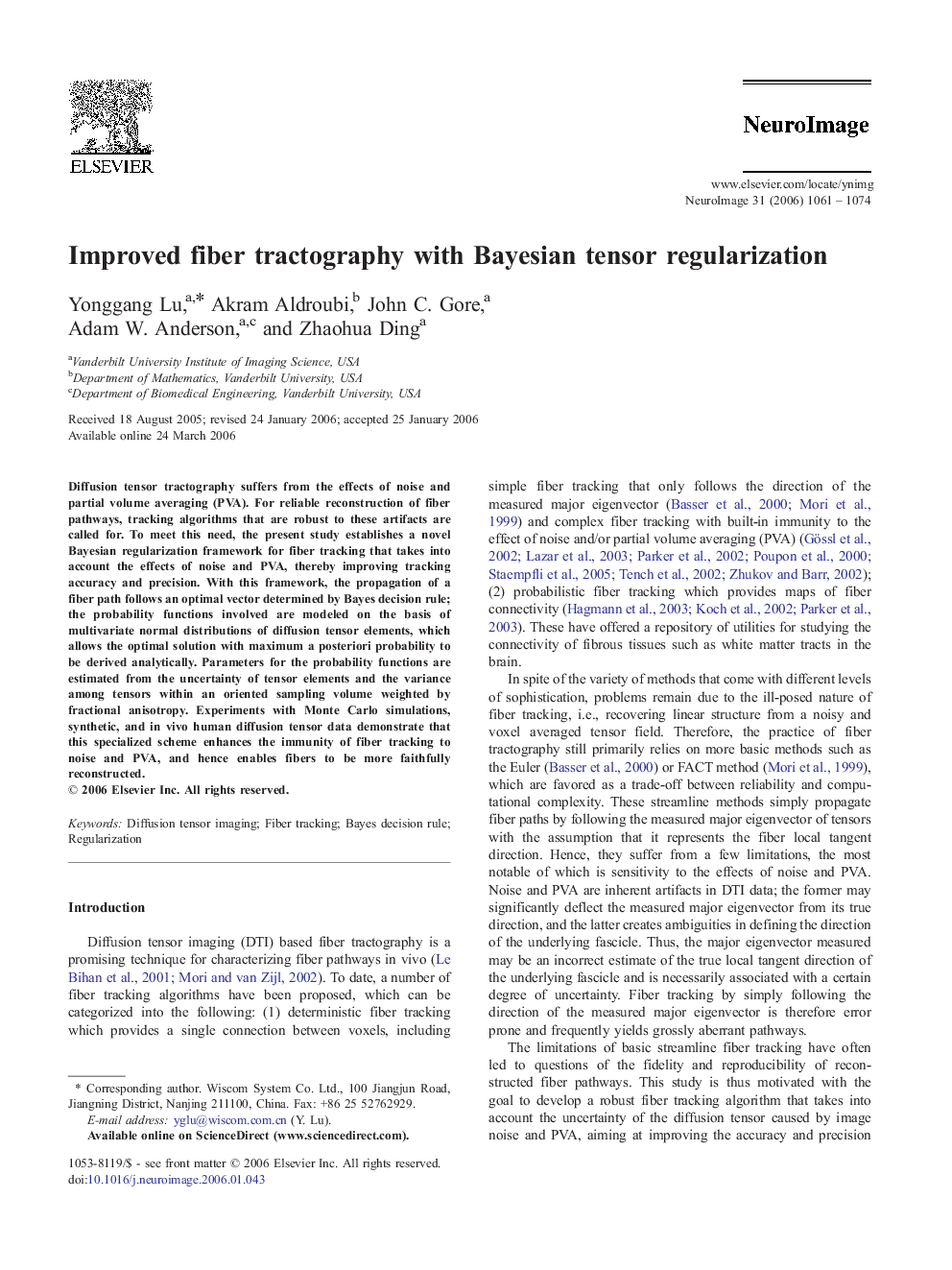| Article ID | Journal | Published Year | Pages | File Type |
|---|---|---|---|---|
| 3074051 | NeuroImage | 2006 | 14 Pages |
Diffusion tensor tractography suffers from the effects of noise and partial volume averaging (PVA). For reliable reconstruction of fiber pathways, tracking algorithms that are robust to these artifacts are called for. To meet this need, the present study establishes a novel Bayesian regularization framework for fiber tracking that takes into account the effects of noise and PVA, thereby improving tracking accuracy and precision. With this framework, the propagation of a fiber path follows an optimal vector determined by Bayes decision rule; the probability functions involved are modeled on the basis of multivariate normal distributions of diffusion tensor elements, which allows the optimal solution with maximum a posteriori probability to be derived analytically. Parameters for the probability functions are estimated from the uncertainty of tensor elements and the variance among tensors within an oriented sampling volume weighted by fractional anisotropy. Experiments with Monte Carlo simulations, synthetic, and in vivo human diffusion tensor data demonstrate that this specialized scheme enhances the immunity of fiber tracking to noise and PVA, and hence enables fibers to be more faithfully reconstructed.
